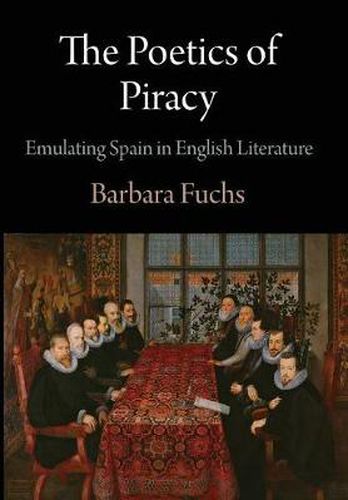Readings Newsletter
Become a Readings Member to make your shopping experience even easier.
Sign in or sign up for free!
You’re not far away from qualifying for FREE standard shipping within Australia
You’ve qualified for FREE standard shipping within Australia
The cart is loading…






With its dominance as a European power and the explosion of its prose and dramatic writing, Spain provided an irresistible literary source for English writers of the early modern period. But the deep and escalating political rivalry between the two nations led English writers to negotiate, disavow, or attempt to resolve their fascination with Spain and their debt to Spanish sources. Amid thorny issues of translation and appropriation, imperial competition, the rise of commercial authorship, and anxieties about authenticity, Barbara Fuchs traces how Spanish material was transmitted into English writing, entangling English literature in questions of national and religious identity, and how piracy came to be a central textual metaphor, with appropriations from Spain triumphantly reimagined as heroic looting.
From the time of the attempted invasion by the Spanish Armada of the 1580s, through the rise of anti-Spanish rhetoric of the 1620s, The Poetics of Piracy charts this connection through works by Ben Jonson, William Shakespeare, Francis Beaumont, John Fletcher, and Thomas Middleton. Fuchs examines how their writing, particularly for the stage, recasts a reliance on Spanish material by constructing narratives of militaristic, forcible use. She considers how Jacobean dramatists complicated the texts of their Spanish contemporaries by putting them to anti-Spanish purposes, and she traces the place of Cervantes’s Don Quixote in Beaumont’s The Knight of the Burning Pestle and Shakespeare’s late, lost play Cardenio. English literature was deeply transnational, even in the period most closely associated with the birth of a national literature.
Recovering the profound influence of Spain on Renaissance English letters, The Poetics of Piracy paints a sophisticated picture of how nations can serve, at once, as rivals and resources.
$9.00 standard shipping within Australia
FREE standard shipping within Australia for orders over $100.00
Express & International shipping calculated at checkout
With its dominance as a European power and the explosion of its prose and dramatic writing, Spain provided an irresistible literary source for English writers of the early modern period. But the deep and escalating political rivalry between the two nations led English writers to negotiate, disavow, or attempt to resolve their fascination with Spain and their debt to Spanish sources. Amid thorny issues of translation and appropriation, imperial competition, the rise of commercial authorship, and anxieties about authenticity, Barbara Fuchs traces how Spanish material was transmitted into English writing, entangling English literature in questions of national and religious identity, and how piracy came to be a central textual metaphor, with appropriations from Spain triumphantly reimagined as heroic looting.
From the time of the attempted invasion by the Spanish Armada of the 1580s, through the rise of anti-Spanish rhetoric of the 1620s, The Poetics of Piracy charts this connection through works by Ben Jonson, William Shakespeare, Francis Beaumont, John Fletcher, and Thomas Middleton. Fuchs examines how their writing, particularly for the stage, recasts a reliance on Spanish material by constructing narratives of militaristic, forcible use. She considers how Jacobean dramatists complicated the texts of their Spanish contemporaries by putting them to anti-Spanish purposes, and she traces the place of Cervantes’s Don Quixote in Beaumont’s The Knight of the Burning Pestle and Shakespeare’s late, lost play Cardenio. English literature was deeply transnational, even in the period most closely associated with the birth of a national literature.
Recovering the profound influence of Spain on Renaissance English letters, The Poetics of Piracy paints a sophisticated picture of how nations can serve, at once, as rivals and resources.